Photographs: Jitendra Prakash/Reuters Aditi Shah and Tommy Wilkes in New Delhi
As India's mammoth general election approaches, jackhammer drills are quietening down at construction sites and earthmovers and cranes remain parked.
Many of the country's real estate and construction companies -- their finances already squeezed by a sharp economic slowdown -- are diverting funds from housing and other projects to election campaign contributions.
Many projects are stalled, at least temporarily.
More than other businesses, Indian developers and contractors are particularly reliant on ties with the government to acquire land or win contracts.
If they fund a winner's campaign, the payoffs can be huge.
. . .
Election cash call puts strain on construction, real estate
Image: A stock trader in Mumbai.Photographs: Sahil Salvi/Reuters
Based on past elections, such companies could end up funding a disproportionate amount of the $5 billion that political parties are likely to spend this time to woo the country's 815 million voters.
"A lot of money will flow from real estate into the elections, much of it unaccounted for," said Santhosh Kumar, Chief Executive Officer of operations at Jones Lang LaSalle India, which advises real estate clients, including developers.
"They (developers) have to fund political candidates to facilitate future opportunities. Whoever comes into power, they have to maintain a relationship," he told Reuters.
The level of cement consumption -- a barometer for wider construction activity -- falls around 12 percent during elections, according to a 2011 study.
. . .
Election cash call puts strain on construction, real estate
Image: Poll funding in India is highly opaque.Photographs: Prasanna D Zore/Rediff.com
Poll funding in India is highly opaque but political parties are expected to spend around 300 billion rupees ($4.9 billion) for the five-week election starting on April 7, anti-corruption groups have said.
That is many times the legally permissible limit of $114,000 for each of the 543 constituencies, and most of the funds will come from the thriving black or underground economy.
Narendra Modi, the main opposition candidate for prime minister, has seized on anger at a spate of corruption scandals to galvanise support, although there is plenty of evidence to suggest that most major parties are involved in illicit campaign funding.
But declared donations also underline the importance played by specific industries.
Almost one-sixth of such donations to national parties between 2004-05 and 2011-12, a period covering two elections, came from real estate, oil and power firms, a report by the Association for Democratic Reforms showed.
. . .
Election cash call puts strain on construction, real estate
Image: An investor gestures with folded hands towards the Bombay Stock Exchange (BSE) building while watching a large screen displaying India's benchmark share index in Mumbai.Photographs: Arko Datta/Reuters
BOON FOR RETAIL
While the campaign spend for this year's national election will likely prove a boon for many businesses, they are mainly in the consumer and small retail sector.
Real estate and construction are not likely to benefit and it's being reflected in the stock market.
Indian stocks have hit record highs this month on the perception that Modi will win and bring in a more business-friendly administration.
Real estate companies have tracked some of those gains, but in a 12-month period, they have slumped about 20 percent, according to the CNX Realty index , which includes developers like DLF Ltd. and Oberoi Realty.
In the same period, the broader Indian market is up about 17 per cent.
. . .
Election cash call puts strain on construction, real estate
Image: Traders generally take risk in a volatile market.Photographs: Reuters
Annual profit at India's top developer, DLF, has fallen for five consecutive years and earnings for the first nine months of the current April-March fiscal year are 40 percent lower from a year ago.
The mutual dependence between developer and politician is most acute in areas where land is in high demand, like the fast-growing regions of Gurgaon and Noida near New Delhi.
Most developers contacted by Reuters were reluctant to discuss the question of financing of election candidates because of the sensitivity of the topic.
No one agreed to speak on the record.
But several, as well as investors and analysts, explained that the sector is called upon by politicians to back campaigns either with cash or by paying for services such as hiring cars and airplanes or printing posters.
. . .
Election cash call puts strain on construction, real estate
Image: India's economic growth slowed to the lowest in a decade last fiscal year.Photographs: Reuters
"India hasn't found a way to finance elections in a way that's transparent and above board.
"The under-the-table and opaque nature is stark," said Milan Vaishnav, of the Carnegie Endowment for International Peace, who co-wrote the paper on elections and cement consumption.
India's economic growth slowed to the lowest in a decade last fiscal year, while a drop in home sales has squeezed the liquidity that developers can use to fund political parties.
"What some soft target developers are telling politicians today is that they are not in a position to fund anything," said Lalit Kumar Jain, chairman of the Confederation of Real Estate Developers Association of India.
. . .
Election cash call puts strain on construction, real estate
Image: Potential homeowners are seething at the delays in getting possession of property.Photographs: Reuters
Meanwhile, potential homeowners are seething at the delays in getting possession of properties they have already largely paid for as developers are running out of funds, either because of the slowdown or the election.
"When we went to the site, it was dead.
“We could count the labourers sitting and relaxing.
"There was no machinery working and we saw no raw materials that would be used," said Ashima, a single mother of two who was expecting to move into her new home in Noida earlier this year but has now been told it will take another two and half years.
"They are giving all sorts of reasons for the delay -- inflation, government issues and other things beyond their control," she said.
"It is a very big setback. People say India is booming.
Where is it booming?"

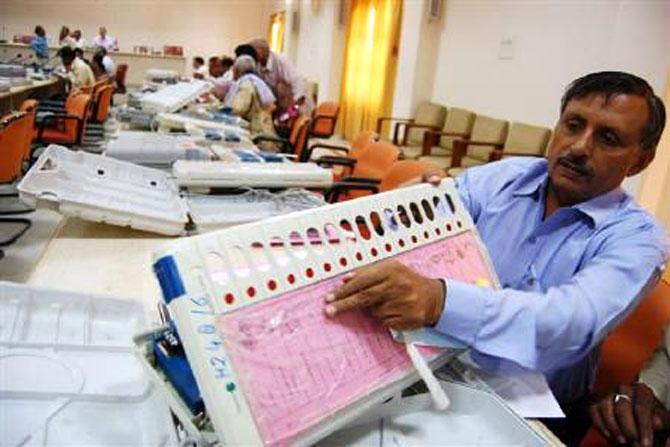
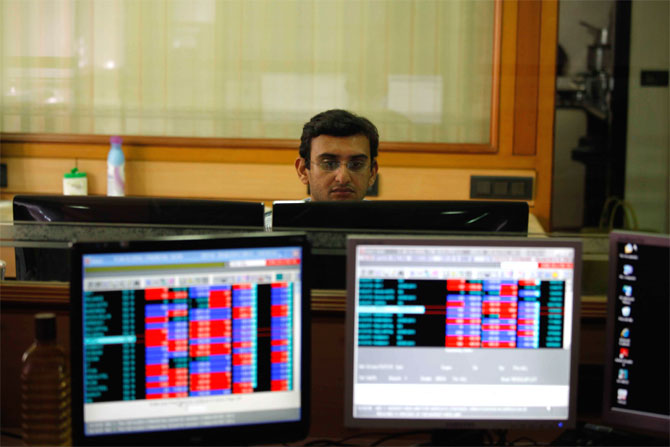
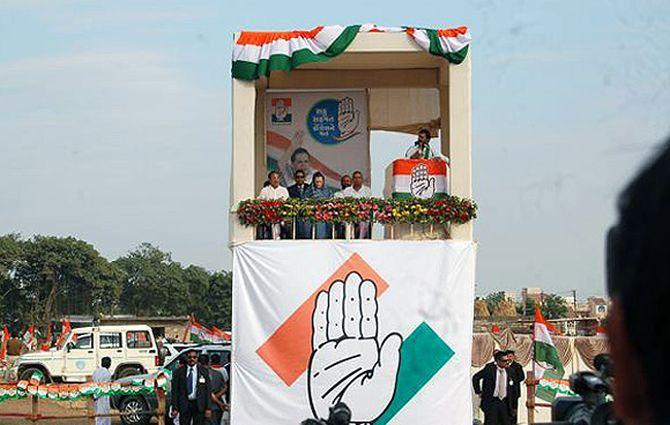
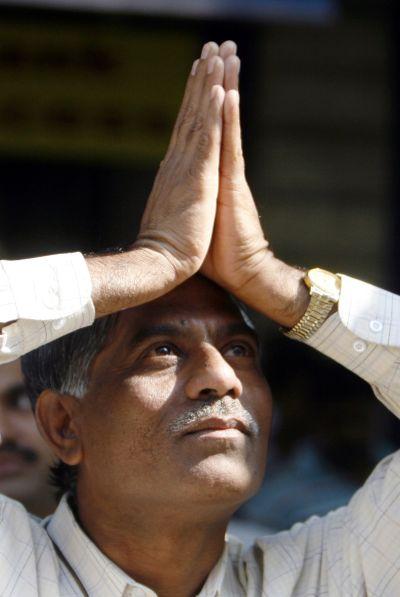
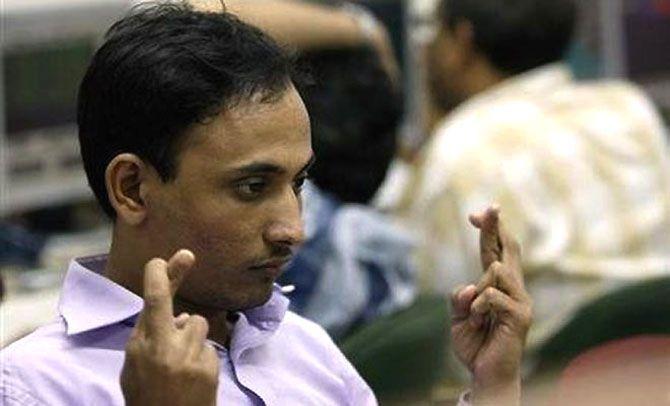
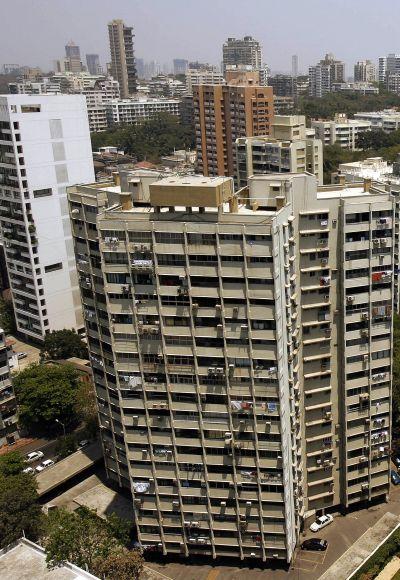
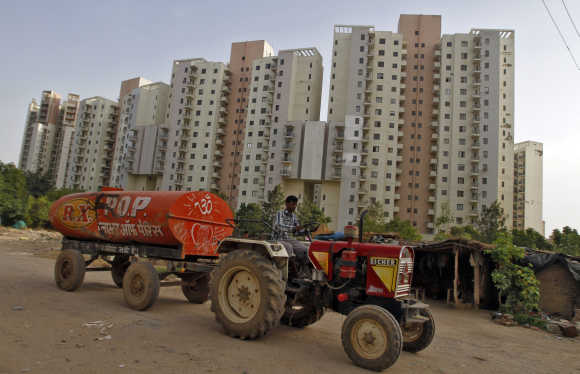

article